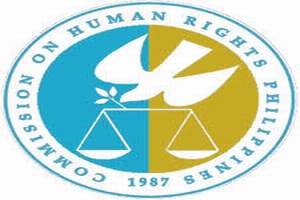
From the Website of GPH - Government of the Philippines
links: http://www.gov.ph/2015/12/15/aquino-3rd-uncac-state-conference/
President Aquino at the 3rd UNCAC State Conference
Speech
of
His Excellency Benigno S. Aquino III
President of the Philippines
At the 3rd United Nations Convention against Corruption State Conference
[Delivered at Malacañan Palace, Manila, on December 15, 2015]
As I
near the final days of my term, it is becoming easier to fully witness
the scope of the reforms undertaken by our administration, and the
stellar results our shared efforts have brought. Over the past five
years and five months, we—together with the Filipino people—have
transformed our country from the Sick Man of Asia into Asia’s New
Darling; we have channeled our economic success into social services
that make certain that our growth is inclusive; and we have begun to see
the tangible impact of our long-term efforts to alleviate poverty, we
can see this in the form of 1.4 million Filipino households—roughly
equivalent to 7 million Filipinos—lifted above the poverty line, as well
as the lowest unemployment rate in a decade. All this is rooted in the
battle cry of our administration, that our Senate President has reminded
us: Kung walang corrupt, walang mahirap. Where there is no corruption,
there will be no poverty.
Throughout
our administration, we have stood by that promise, with a view of
empowering our people, showing them how it is to have a government that
truly works for them. From day one, we worked to dismantle the culture
of corruption, entitlement, and waste that defined the preceding decade.
One of the first things we did was to buttress the idea that those in
government are public servants—and that the only privileges we should
enjoy are the ones that are also accorded to every single one of our
fellow citizens. Perhaps the lowest lying fruit in this regard is how we
go through traffic. We reminded the entitled few who chose to muscle
their way through traffic by using sirens—or what we called
“wangwang”—that only five people are authorized to use those sirens. I
am one of those five, and, to set an example, I instructed my security
detail not to use sirens, and to wait when we have to wait, while
encouraging the other four leaders to do the same. The message was
clear: The days when a powerful few could lord it over the rest of our
countrymen were over.
We
worked to eliminate corruption and institute transparency in every
possible pocket of governance. One prominent example is how we fixed our
budgeting system, going from one that was prone to leakage and
corruption, to zero-based budgeting. This is a system that requires
government to review every single item in the budget, to see which ones
worked, and which ones didn’t. While it is true that this might perhaps
be a more tedious method of doing things, it is more meticulous and
gives way to far less wastage and manipulation by unscrupulous
individuals, and rightfully so. After all, we are aware that we are not
spending our personal money, but our people’s hard earned money.
This is
also the philosophy behind our bottom-up budgeting approach. We reached
out to communities and considered them an integral part in the budgeting
process, because they know what they need more than anyone else. Since
we began this approach in 2013, we have allotted it P48.9 billion,
funding nearly 40,000 projects along the way; and under our proposed
budget for next year, this approach will receive P24.7 billion to fund
14,326 projects.
We also
know that corruption flourishes only when people feel powerless against
it, and are thus unwilling to fight it. This is why we harnessed
advances in technology to equip our countrymen with the tools they need
to hold their leaders accountable. We put up websites called Budget ng
Bayan and Pera ng Bayan, which translate to The People’s Budget and the
People’s Money. Through these portals, any Filipino, through an internet
connection, can peruse how the national government is spending their
money, and report individuals they suspect of corruption.
This
philosophy also drove our movement to abolish a culture of entitlement
in government owned and controlled corporations—who, in the past, were
able to award excessive bonuses to themselves, even during years when
they operated at substantial losses. Through the help of our allies in
the legislature, particularly Senate President Frank Drilon and
then-Congressman Jun Abaya—as well as the excellent work of Finance
Secretary Cesar Purisima, we passed a bill that professionalized how our
GOCCs go about their business. The numbers speak for themselves: From
January 2001 to June 2010, GOCCs turned over P84.18 billion in
dividends. From July 2010 to June 2015, we collected P131.86 billion.
Imagine that: While we have only six years in office—and while we have
abolished, privatized, or deactivated non-performing GOCCs—we are well
on our way to doubling what our predecessors collected in nine and a
half years. Is this not proof enough that good governance is good
economics?
Of
course, maximizing efficiencies through prudent spending is just one
part of any anti-corruption campaign. Justice must also be served to
those who have erred. I am proud to say that, during our time in office,
we have made no exceptions: We have gone after all those accused of
corruption, regardless of their resources or their influence. We removed
from office a Chief Justice who failed to declare 98 percent of his
assets in his Statement of Assets, Liabilities, and Net Worth, which is
required by the very Constitution he swore—and failed—to uphold. We
filed plunder and graft cases against a former President, who is now
under hospital arrest. We also filed cases against prominent Senators
and former heads of government agencies and corporations, all of whom
were allegedly involved in a scam of massive proportions. Might I note
that, at one point, all these individuals were once considered
“untouchable” by many.
Our
focus, however, was not simply on the high-profile cases. Our goal has
been to combat corruption throughout the bureaucracy and Philippine
society at large. This is why, through three targeted programs—named
Revenue Integrity Protection Services (RIPS), Run After the Smugglers
(RATS), and Run After Tax Evaders (RATE)—we have filed a total of 736
cases between July 2010 and September 2015.
This
culture of integrity and accountability we have fostered has certainly
borne fruit. We have rehabilitated our image in the international
community, thereby reclaiming our national pride. During our time in
office, we have improved our ranking in surveys that measure corruption
as already mentioned by the Senate President, but if you will allow me,
let me repeat: Transparency International has bumped us up 49 places in
its Corruption Perceptions Index, while the Heritage Foundation has
bumped us up 48 places in terms of Freedom from Corruption, which is
part of its Economic Freedom Index.
It has
also encouraged even more people to get involved in the drive against
corruption. In fact, just last week, I spoke at an event called the
Integrity Summit, where individuals from the private sector gathered to
share their ideas on how to fight corruption and how to build systems of
integrity. In fact, this group has an initiative called the Integrity
Pledge, the signatories of which commit to exercise zero tolerance for
corruption. To date, they have gathered over 3,000 signatories, and are
targeting 10,000 by 2017, and I am told that they are ahead of schedule.
Indeed, it is events like those—as well as the one we are holding
today—that allow me to be even more optimistic that, moving forward, our
countrymen will make certain that like-minded people are voted into
office, and that those who wish to bring back the old, broken status quo
will be held to account. They show that our society is far more
committed to fighting corruption than ever before—that it is a fight we
are all engaged in wholeheartedly.
The
results of our all-out campaign against corruption have manifested in an
empowered government, with a greater capacity to invest in its people.
We can see it in the 4.4 million household beneficiaries of our
conditional cash transfer program, who have additional resources to get
by, and can more ably send their children to school. We can see it in
the education sector, which has managed to clear all our inherited
backlogs in classrooms, school seats, and textbooks, while at the same
time upgrading our basic education system to be at par with global
standards. We can see it in the health sector, where the bottom 40
percent of our population can now just walk into any government
hospital, show their PhilHealth card, and receive treatment, free of
charge. We can see it in every Filipino who can now look forward to a
more secure future, and who have regained control of their own
destinies.
Make no
mistake: Despite all these successes, and despite the breadth of what
the Filipino people have achieved in just five years and five months, I
am aware that much more that needs to be done. The first review cycle
for the implementation of this convention is proof enough. I stand here
today in commitment: Until the very last day of my term, we will strive
to do even more against corruption and to uplift as many of our
countrymen as possible, and we encourage our colleagues from the
Legislature and the Judiciary to continue doing the same.
What we
must realize, however, is that much of our efforts hinges on the
decisions we make, as one country, in next year’s elections. There is,
of course, the crooked path, which will lead us back to the hopelessness
of the past, and there is the Straight Path, through which we can
maintain—if not accelerate—the pace of reform. I have faith that, with
all that we have achieved together these past few years, our people will
not choose to backslide; that they will choose officials with the
integrity and the capabilities to build on our successes, so that we, as
one Philippine nation, can give rise to a country we can be proud to
bequeath to coming generations.
Thank you. Good day.
GPH Website
OTHER HUMAN RIGHTS PROMOTIONS WEBSITES
PROTECTION AND PROMOTION OF HUMAN RIGHTS
-----------------------------------------------------------------------------------------------
------------------------------------------------------------
-----------------------------------

























































0 comments:
Post a Comment